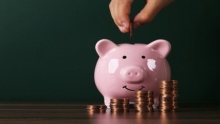Your Jamaica Public Service (JPS) bond and you
JPS recently announced that it would call (i.e. “repurchase”) its 11% 2021 bond at a price of 101.83 from bondholders on March 5, 2019. This means that in addition to the interest earned for the period, bondholders will receive their principal of US$101.83 for every US$100 of face value invested. The bond is widely held by local investors. What will you do with your proceeds? Today we look at the history of the bond and some alternative options in the financial markets.


